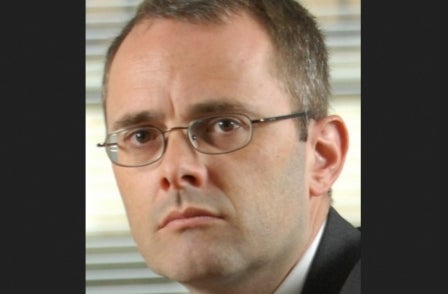
Sacked former editor of investigative journalism website Exaro Mark Watts has claimed an employment tribunal victory against his former employer.
However, a source close to the board of the former website has claimed his win is a technicality because the company is in liquidation and so has no money to pay him.
Watts was made redundant at the end of June last year and then sacked three weeks later after being accused of breaching company confidentiality by speaking out about his case in the media and on Twitter.
Exaro was shut down on 21 July 2016 some five years after being launched.
The website broke a number of high-profile stories but questions have been raised about its reporting of an alleged paedophile ring involving high-profile public figures. In March 2016 the Met’s Operation Midland investigation, which relied heavily on evidence from an Exaro source known as “Nick”, collapsed without making any arrests.
Watts says the London Central Employment Tribunal has awarded him £61,310 in compensation – which includes unpaid salary and failure to pay contractual notice.
He said Exaro ceased trading in July last year, but did not go into liquidation until after his claim was served in October.
Exaro, which was owned by city entrepreneur Jerome Booth, did not defend the employment tribunal case.
Watts said that if Exaro ignores the payment order and goes into insolvency, he will seek some of the money owed to him from the government fund.
Press Gazette understands that Exaro’s two staff journalists were able to claim statutory minimum redundancy payments from the government, but around half a dozen freelance staff were left thousands out of pocket.
A source close to the Exaro board said: “Mark Watts was rightly sacked for gross misconduct.
“The company is in liquidation and therefore (given that it no longer exists) was unrepresented at the tribunal hearing. It’s typical of him to spin this into some kind of victory on his part, as nothing could be further from the truth.
“It’s merely a technicality to vacate the case – and in any event, he already knew the company is in liquidation, and has no money to pay him.
“Instead, he could have turned up to the recent company liquidation meeting itself – which would have been the appropriate point for him to air his grievances.
“As a director of the company itself he should also have accounted for his own shortcomings too at this meeting – but given that he stayed at home.”
Watts responded to this by saying: “As I said before, the company only sought to go into liquidation very hastily after I lodged the claim at employment tribunal.
“It is telling that rather than seek to defend its indefensible position in the proper forum, a source on behalf of Jerome Booth chooses to brief against me in such a cowardly and abusive manner.
“The tribunal ruled, as was always inevitable, that I was unfairly dismissed. The company even made unlawful deductions by not paying my salary. This was also an indefensible position in law.
“My former colleagues, journalists and libel readers, have told me how upset they are that they have also not been paid what they are due. The ‘source’ shows a cavalier disregard them and for proper process.
“The creditors’ meeting was arranged with remarkable haste over the Christmas break. I was abroad, and so could not make the meeting.”
Watts said it was wrong to say the company had “no money”, he said it had some assets that he would count as a preferential creditor.
Email pged@pressgazette.co.uk to point out mistakes, provide story tips or send in a letter for publication on our "Letters Page" blog
